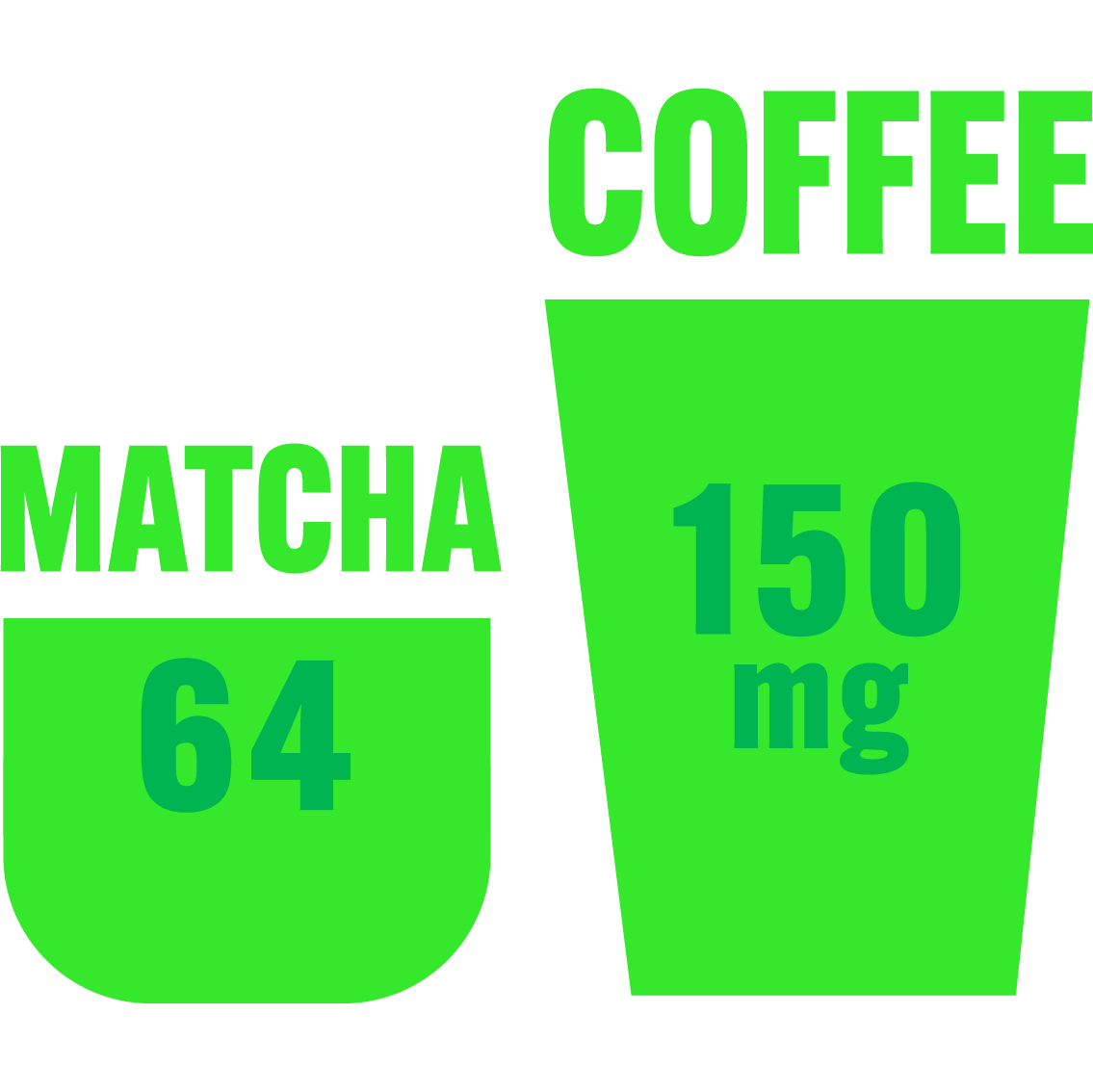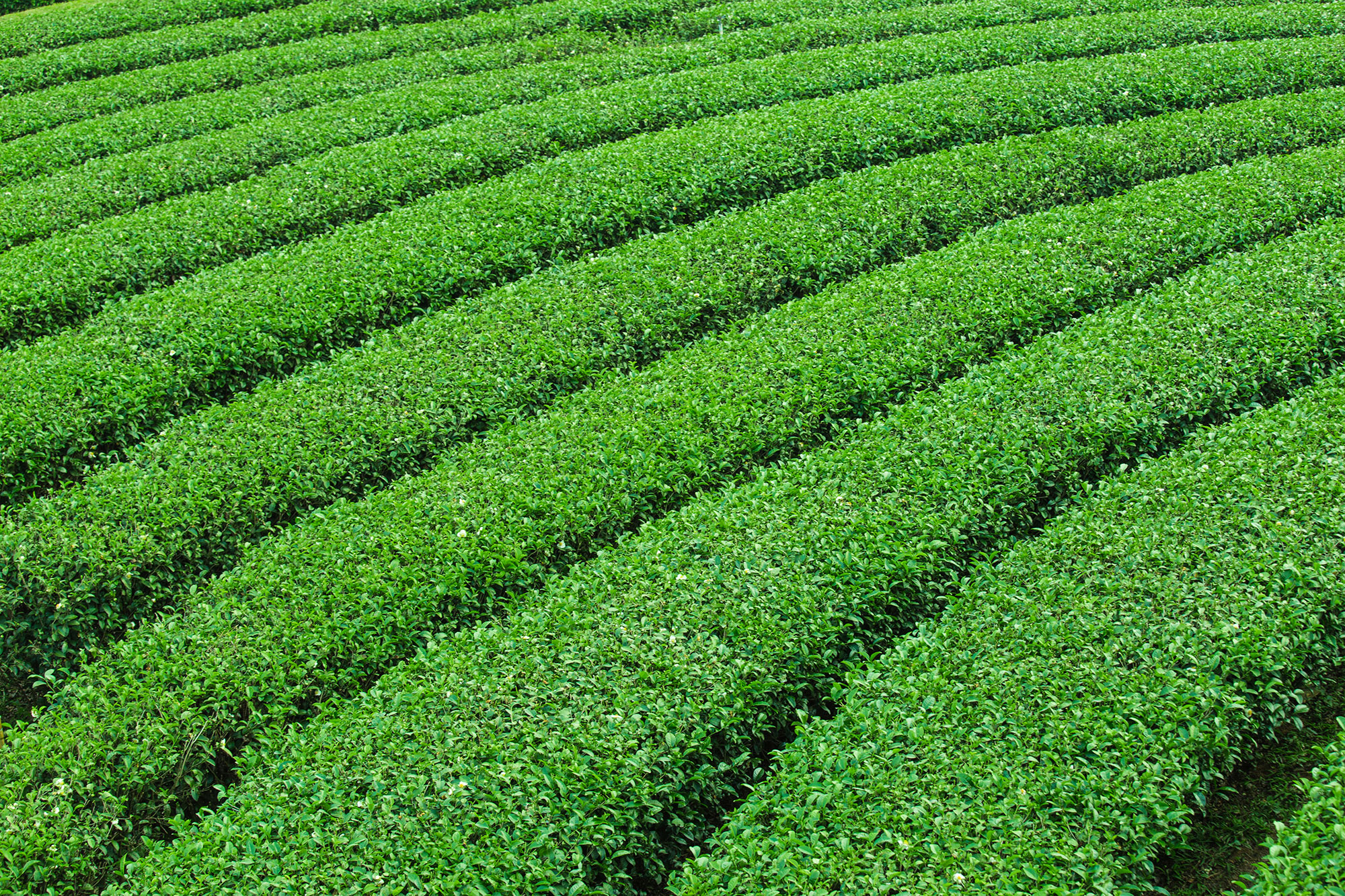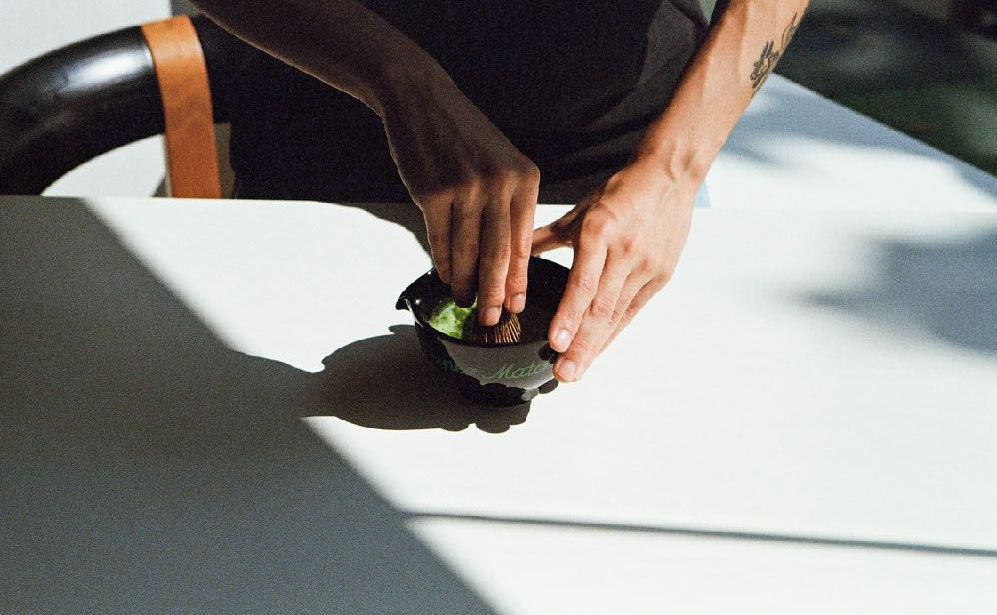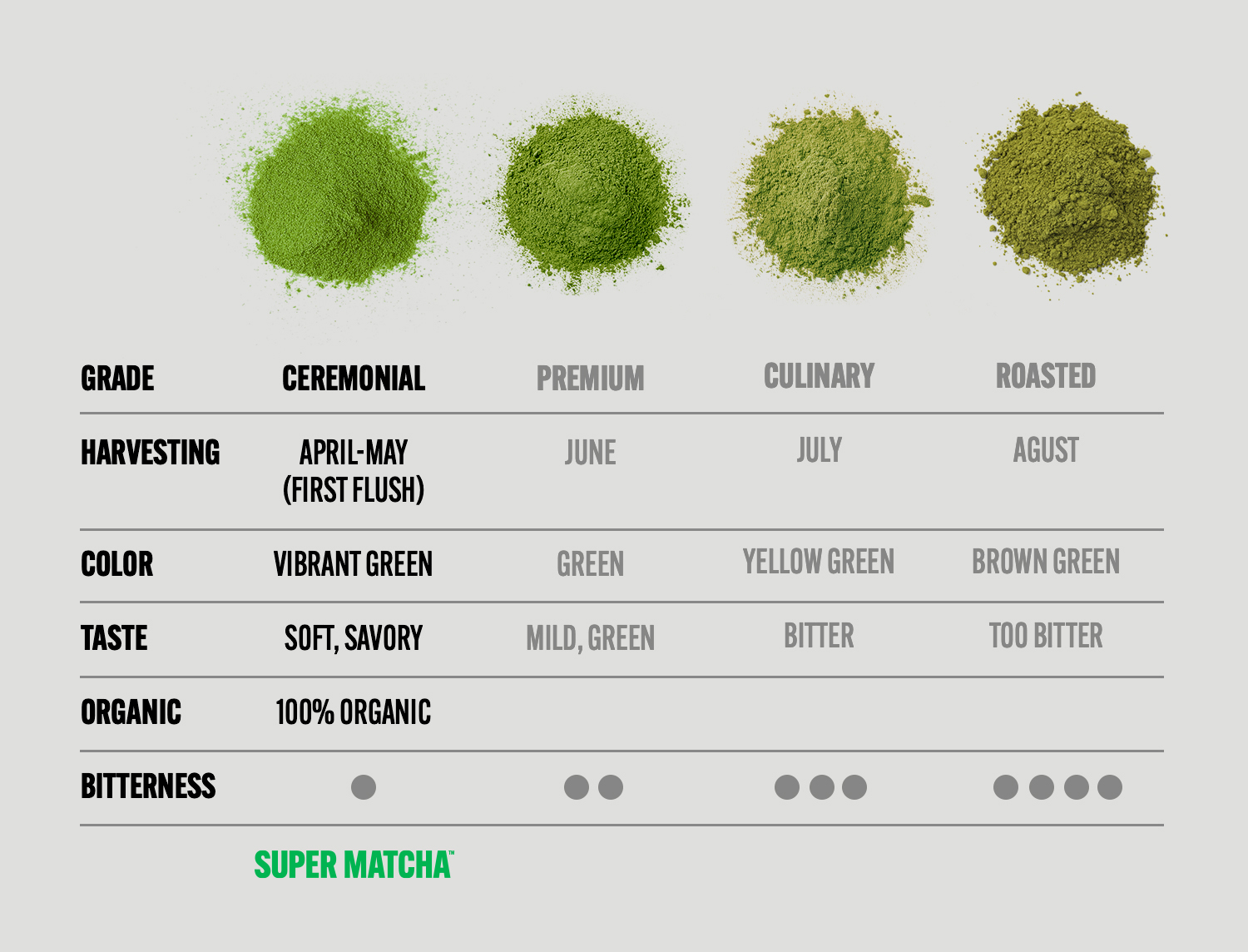
Gentle Awakening
Each cup of matcha contains about half the caffeine of coffee (60-70 mg), providing a slow, heart-friendly energy boost.

Metabolism Support
Rich in catechins (EGCG), matcha helps promote fat burning and boosts metabolic vitality.

Relaxed Focus
With L-theanine, matcha aids in relaxation, easing tension in both body and mind.
*Information based on the properties of matcha components
*Caffeine content comparison (SUPER MATCHA Pure Pocket vs. Americano Tall size)
*Source (National Institute of Health and Nutrition publication)

1,300 Years of Heritage
Matcha is a traditional East Asian tea with a rich history spanning over 1,300 years. The custom of drinking matcha began during China’s Song Dynasty (960–1279) and later flourished in Korea during the Goryeo Dynasty (918–1392), having been introduced by Buddhist monks who studied abroad in China.
The caffeine in matcha was known to help Buddhist monks stay focused and alert during long hours of meditation and spiritual training. Because of this, the ritual of drinking matcha became deeply rooted in temple life. However, with the rise of Confucianism during the Joseon Dynasty, tea culture declined in mainstream society and was largely preserved only within Buddhist temples and a few tea-growing regions.

Ceremonial Grade Organic Matcha
Matcha is a natural source of energy, rich in essential nutrients and renowned for its health benefits — even when compared to other teas. SUPER MATCHA uses only the highest grade of Korean organic matcha, known as ceremonial-grade. Young green tea leaves, cultivated in early spring and grown in the shade, are finely ground to create the matcha’s signature vivid green color.
The word “ceremony” refers not only to the tea’s superior quality but also to the mindful ritual of preparing it. The process of whisking matcha into a frothy brew offers a meditative moment — a calming, wellness-driven practice that invites us to slow down, focus inward, and savor the present.

Super Leaf Mark

Green tea vs Matcha
Green tea and matcha both come from the same plant — Camellia sinensis — but they differ significantly in cultivation and processing. Matcha is made by shading young tea leaves several weeks before harvest, which increases their chlorophyll and amino acid content — offering up to 10 times more amino acids than regular powdered green tea.
SUPER MATCHA use only tea leaves grown in carefully managed, certified organic fields. Through direct partnerships with pesticide- and chemical-free farms, we ensure the production of fresh and safe organic matcha every year. Our 100% premium-grade organic matcha is completely free from artificial additives — including algae-based colorants, preservatives, and emulsifiers — ensuring a pure, clean taste in every sip.